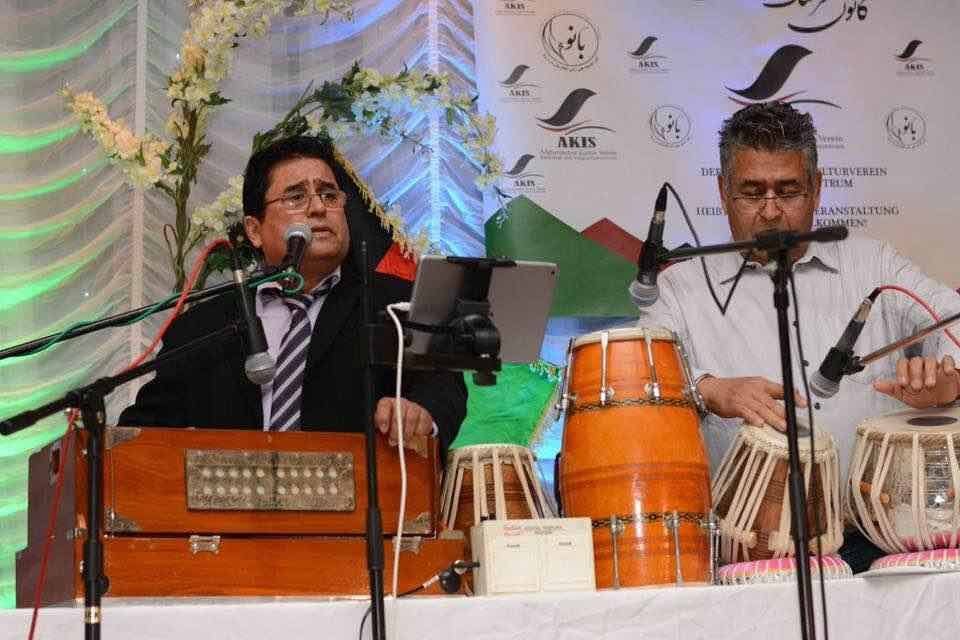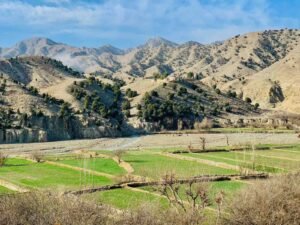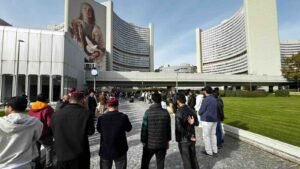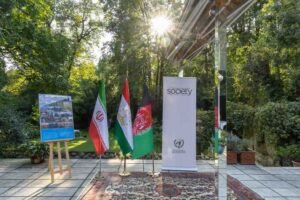Controversy and Backlash as Taliban Bans Music at Wedding Ceremonies in Kabul

Two Afghan musicians in Vienna, Waheed Anwar and Farid Anwar. Photo: @private
Ilhamuddin Afghan
The Ministry of the Propagation of Virtue and the Prevention of Vice of the Taliban government recently issued a directive to hotel officials in Kabul, instructing them not to allow music to be played at wedding ceremonies. This decision was communicated during a meeting between Ministry officials and wedding hall representatives in Kabul. While the Taliban has previously discouraged the playing of music through various means, this is perhaps the first time that hotel officials in central Kabul have been specifically asked to enforce the ban.
The Ministry of the Taliban, in a press release, stated that “music and other activities conflicting with Islamic and Sharia rules should be avoided.” The Taliban considers the playing of music to be contrary to Islamic principles. However, there have been no indications thus far that individuals who violate this ban will face punishment.
The action taken by the Taliban has sparked a significant backlash among Afghans, who view it as an infringement on their individual freedom. Mohammad Agha, a resident of Kabul, expressed his dissatisfaction, stating, “With the re-establishment of the Taliban, all the freedoms of Afghans in Afghanistan have been taken away, and the Taliban have imposed their own orders and desires upon the people.”
Another resident of Kabul, Nur Tazai, an expert on cultural issues, asserted that the Taliban aims to establish their interpretation of Islam. Islamic scholars hold varying opinions regarding music. While some believe that listening to music that does not lead to social disorder is acceptable, they consider music that leads to immorality as haram. Though there are no explicit scriptural texts addressing the sanctity of music, religious scholars often use it as a means to exert societal pressure. On the other hand, cultural scholars emphasize the cultural significance of music, noting its power to foster relationships and facilitate expression and understanding among individuals.
Many cultural experts argue that music has a profound impact on mental well-being, helping to alleviate anxiety. They contend that rhythmic music, in particular, can be as beneficial as exercise, serving as a valuable tool for strengthening cultural bonds. Music has also been instrumental in bringing recognition to many poets, allowing their work to reach a wider audience. For instance, without music and singers, people would not have had the opportunity to hear the poetry of many renowned poets like Rahman Baba.
Music plays a vital role in strengthening love for one’s country and nation. Ahmed Jan, a tribal person from Nangarhar, explains how Malang Jan’s poetry ignited love for the country among the people, keeping the spirit of patriotism alive even after half a century. Moreover, many poets who have composed patriotic poems have reached the masses through their songs.
Furthermore, music has the ability to reflect historical moments, whether tragic or comedic. Songs like “Pardo has whispered” provide a vivid picture of the situation at the time they were written. For example, Jahani’s poem about the wars in Kabul, sung by Pashto singer Naghma, evokes the tragedy of the war and its impact on the city.
However, since the Taliban regained control of Afghanistan in August 2021, many Afghan singers have fled the country. Some sought refuge in neighboring Pakistan, while others migrated to different countries. Afghan singers residing in Pakistan lament the hardships they face due to the lack of opportunities for musical activities, resulting in economic struggles.
Cultural experts warn that if the ban on music continues in Afghanistan, it will lead to the collapse of the foundations of Afghan original music, which is predominantly based on folk styles. Consequently, Afghan society would be deprived of the sweetness and richness that music brings.
The Taliban’s ban on music at wedding ceremonies in Kabul signifies an escalation of their restrictions on this form of artistic expression. The move has generated significant opposition from Afghans, who perceive it as an infringement on their individual freedoms.
*Mr. Afghan chooses a pseudonym. He is a local journalist based in Eastern Afghanistan.
Note: The contents of the article are of sole responsibility of the author. Afghan Diaspora Network will not be responsible for any inaccurate or incorrect statement in the article.








